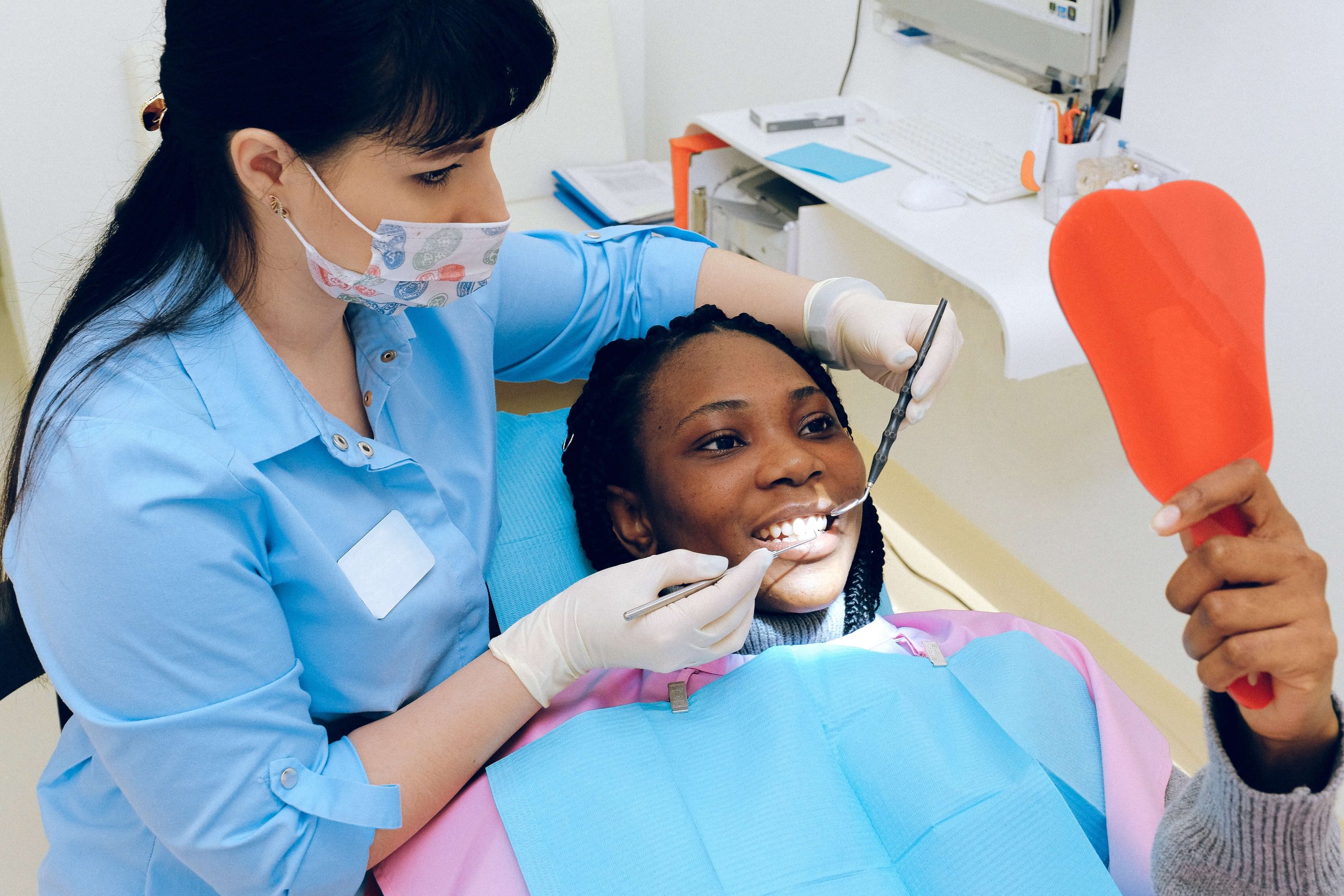Dental Hygienist vs. Registered Nurse: Where Do They Differ?
Dental hygienists and Registered Nurses (RN) are equally important in the health care industry, but here's the thing: one is not better than the other. So, if you're torn between these two career paths, it's essential to know that they also share some similarities in that they both work with patients, offer regular check-ups, and prevent health conditions. But, no matter which one you decide on, there is a great reward.
This article will explore nursing vs. dental hygiene, showcasing the differences and similarities between the two healthcare professions.
What Does a Registered Nurse Do?
A Registered Nurse is what you would imagine nurses do – provide treatment to patients with medical conditions. They have many responsibilities, such as administering medication, managing medical records, monitoring patient recovery, etc. RN is the most widespread type of nursing; thus, you can find RNs anywhere, from hospitals to military bases, camps, cruise ships, airplanes, etc.
The main benefit of being a Registered Nurse is that there are many areas you can specialize in, from pediatric to intensive care to rehabilitation.
The main disadvantage is that nurses (including Registered Nurses) work many hours with no fixed time. Above anything else, nurses are emotionally involved in their job since they have to provide support and care for the patient and their families.
What Does a Dental Hygienist Do?
As the name suggests, a Dental Hygienist provides oral care to patients to prevent infections and diseases in the mouth. They keep the teeth, mouth, and gums healthy and examine them closely to check if there are any signs of damage. Dental Hygienists work with one patient at a time, so there is not a lot of emotional support. But, they educate their patients on maintaining good oral health and the correct oral care methods.
Most Dental Hygienists work in private dental offices, but they can also work in schools, dental hospitals, community health centers, childcare centers, etc. They have short hours, so it's a systematic work that not everyone is fond of because it's so repetitive.
RN vs. Dental Hygienist: Similarities and Differences
The dentistry vs. medicine debate is still prominent, but there are several differences between a Dental Hygienist and a Registered Nurse, which may impact your career choice. While both of these occupations' primary responsibility is to help patients with their health, they contrast in other areas such as education, working hours, and even salary.
Job responsibilities
As mentioned, Registered Nurses (RNs) are licensed professionals who work with doctors or physicians to provide care to patients. Also, Registered Nurses have the responsibility to:
Conduct examinations and assess symptoms;
Operate medical equipment;
Administer medications and treatments;
Observe and record patients' health;
Educate patients on how to manage injuries or diseases;
Perform diagnostic tests and analyze results, among others.
On the opposite side, Dental Hygienists provide basic dental care. They conduct oral examinations and check for signs of oral diseases. Dental Hygienists also provide cleanings and preventive maintenance to ensure patients have a bright, fresh smile.
Some duties that a Dental Hygienist has on a day to day basis are:
Cleaning teeth to remove any stains, plaque, or tartar;
Examining gums and teeth for cavities or oral disease;
Taking and analyzing dental x-rays;
Applying sealants and fluoride to protect the teeth;
Record patient dental charts;
Teaching patients about proper oral care, etc.
Working hours
Working hours are usually more flexible for Dental Hygienists than for Registered Nurses who work long shifts and hectic schedules. However, depending on where RNs work, they can create a more regular schedule.
For instance, nurses who work in private physicians' offices usually have the weekends off, while in hospitals, the schedules vary. For RN nurses working in emergency care, their schedule can be more tiring because they work three, 12-hour shifts, and these shifts can be overnight or when the facility needs them.
On the contrary, Dental Hygienists usually work part-time, but full-time options are also available. They have less stressful work schedules and enjoy day-to-day, Monday-to-Friday schedules in their private dental offices. Sometimes, though rarely, they can work on weekends and evenings; however, this is all a matter of personal preference.
School requirements
In terms of education, both RNs and Dental Hygienists have two- or four-year programs that they have to follow to earn a degree. But, what degree do they have to earn precisely? For RNs, an associate degree or bachelor's degree in nursing is necessary. Nursing students usually take classes such as chemistry, anatomy, nutrition, microbiology, and psychology classes. After they graduate, RNs should take the NCLEX-RN exam to get their Registered Nurse license.
On the other hand, Dental Hygienists should expect more participation in lab activities and hands-on clinical practice than study for exams. Typical Dental Hygienists classes include dental anatomy, oral health education/preventive counseling, oral pathology, and community dental health. Dental Hygienists must be licensed, though this varies based on the state in which they work.
Interested in pursuing an RN degree in California?
Fill out the form and get all the detailed information you need regarding your chosen program.
Education
It depends on where you see yourself working because an associate degree can give you an entry-level position as a Registered Nurse. In contrast, a bachelor's degree is required to work in a hospital. Similarly, dental hygienists should have an associate degree or bachelor's degree in dental hygiene, which takes two to three years.
If you want to have a more advanced position, there are Master's programs for both professions. For RN, an MSN degree will open doors to more advanced, independent functions such as APRN or ICU nurses. It will also help you take on more leadership roles, such as a Clinical Nurse Leader.
The same goes for Dental Hygienists who can further their education with a master's degree. Besides boosting your credibility, the Master's degree helps Dental Hygienists advance their career in specialized fields such as public health, business, research, or education.
Dental Hygienist Or Nurse: Who Makes More Money?
At the end of the day, both RNs and Dental Hygienists make a lot of money, though it may differ depending on where they work. According to the Bureau of Labor Statistics, RNs' average annual wage is $75,330, while Dental Hygienists earn an average salary of $77,090 per year. This means both professions would provide the same safety net in monetary terms.
Job outlook
Nursing has greater advancement opportunities, while Dental Hygienists are limited to dentistry. But, both careers are expected to grow in the future.
According to BLS, employment for RNs is expected to grow by 9% between 2020 and 2030, adding over 276,700 new jobs during the ten years period. Similarly, employment for Dental Hygienists is expected to grow by 11% during the same period, with over 23,100 new Dental Hygienist jobs opened.
Final Thoughts: Which Career Should You Pursue?
Choosing between these two careers is a personal decision; you need to know your priorities and whether you can get accustomed to long-hour shifts or if you prefer a systematic job. But, one thing is guaranteed, you can expect great satisfaction from both careers because, after all, you can change a patient's life and build relationships with them.



